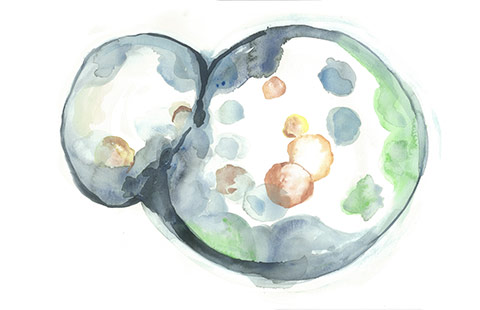As a naturopathic doctor, I get this question A LOT. Women generally aren’t given very specific guidance around how they should be eating when undergoing fertility treatment since IVF clinics are so busy and there is lots of information like injections, labs, imaging, schedules, etc, to go over without delving into nutrition. However, this often neglected aspect of a woman’s life is of great importance. After all, you are what you eat.
DOWNLOAD THE YINSTILL INFERTILITY DIET EBOOK NOW – FREE
So here are some basic tips that I often recommend for my patients who are preparing for any kind of fertility treatment. The key here is for these tips to achieve wellness in your body while causing you no extra stress. There is enough stress coming from the fertility treatments themselves so adding on to that by trying to drastically change your diet would be counterproductive. I am a firm believer that the guilt and stress associated with eating a piece of chocolate or a bag of chips is far more detrimental to your overall health than the food itself. (But everything in moderation, right?)
Suggestions for eating during your IVF
1. Eat right for your blood type:
Although this philosophy doesn’t ring true for all patients, I’d say that a good 80% of my patients feel much better when they adhere to this type of diet. I like that this diet is not particularly restrictive and that it is based on foods that people innately feel good eating. One thing I would add here for blood type A specifically is the need for protein and iron during this time. Blood type A tends to thrive on a vegetarian diet but when preparing for pregnancy, it’s important to have the right amount of iron and protein in your diet since deficiencies can cause problems with conception and pregnancy. I encourage all of my plant-based patients to include healthy sources of protein like fish (if you are pescatarian), tempeh, beans, and legumes, and supplement with a good quality iron supplement when necessary. Make sure you have your levels checked before starting.
2. Avoid cold foods:
This is a suggestion based on Traditional Chinese Medicine. Cold foods are thought to take blood and energy away from the uterus in order to digest them, making the uterus less receptive to conception. Sometimes it’s tricky trying to figure out exactly what a cold food is so here’s a tip to make it easier: eliminate the obvious cold foods like ice cream and cold drinks. Raw foods are generally cold in nature as well unless they create heat in the body such as ginger – that’s more warming. It’s ok to have salad but limit your intake of raw foods to once per day and leave the ingredients out at room temperature for 30 minutes or so to bring them closer to body temperature. Eat more warming foods like ginger, cayenne, soups, stews, and bone broths.
3. Eat pineapple:
This is more an of urban legend as there is no actual proof that pineapple helps with implantation but the reasoning behind it makes sense! Pineapple contains an enzyme called bromelain which helps to decrease inflammation, which is important for immune conditions where inflammation is high, potentially interfering with implantation. Again, leave it out of the fridge for a while before eating it and do not eat canned pineapple.
4. Eat foods you enjoy:
In Chinese medicine, the heart is closely connected to the uterus through a vessel called Bao Mai. This means that pathology of the heart in TCM, may result in infertility or other reproductive health issues. Each TCM organ is also associated with an emotion and the heart happens to be in charge of joy. I always stress this connection and the importance of doing things you enjoy when trying to conceive. This includes enJOYing the foods you eat! More joy = happy heart = healthy uterus.
5. Chew and taste your food:
Be present during your meals. Eliminate distractions and technology. Avoid or limit your eating on the go and try to sit down for all meals. Chew your food thoroughly so that your brain has a chance to activate your parasympathetic “rest and digest” system. Practice mindfulness while eating by paying attention to how your food tastes – this is a form of meditation which, if practiced regularly over time, will help you feel more calm, less anxious, and happier, making your body more receptive to pregnancy.
6. Increase consumption of healthy fats:
These are crucial for healthy hormone synthesis. Foods like avocados, wild fish, olive oil, coconut oil, nuts and seeds are great examples of sources of healthy fats. Being healthy does not mean skipping out on fats. It’s being aware of the types of fats we’re ingesting. You want to stay away from saturated and trans fats while increasing your intake of mono or polyunsaturated fats.
7. Eat a big breakfast:
Making breakfast your largest meal of the day is a challenge but one I encourage you to take on. Having plenty of protein with breakfast serves two main functions: it balances out your blood sugar throughout the day, and it keeps you full throughout the day as well, preventing you from overindulging on sugar or carbs at dinnertime. Once again, this is something simple but it has a profound long-term effect on the health of our hormones. Read more here: https://natural-fertility-info.com/skipping-meals-disrupts-fertility.html
8. Make sure that plants make up at least half of your plate:
Plants contain the vitamins, nutrients, and minerals your body requires for optimal function. For increased vitality you’ll want to consume a wide array of colours – red, orange, yellow, green, purple – the more, the better! Always make sure that at least half of your plate consists of plants, and no, potatoes don’t count.
9. Avoid white stuff:
This is an easy rule of thumb you can go by. Avoid white bread, white rice, white pasta, white sugar, etc. These are usually refined and therefore not good for your body. You want to eat things in their natural form as much as possible. Switch to gluten free or whole grain bread, brown rice, zucchini noodles, and honey instead of the aforementioned items.
10. Stay hydrated:
The body can survive without food for over 3 weeks but it can barely survive without water for one. This gives you a sense of how important water is for the human body and yet most of us are still not getting enough. Water makes up at least 60% of the human body and every living cell needs water to maintain function. Think of your oocytes (eggs) – they’re thirsty! Aim for 2L of water per day. Herbal tea counts but caffeinated drinks DO NOT. For every cup of coffee or black/green tea you drink, you need to drink an extra cup of water that same day to maintain balance.
As I said in the beginning, the most important thing is for you to enjoy what you’re eating and to feel less stressed. Take these suggestions with a grain of salt, or Herbamare (my fav!), rather than feeling like you have to be on a strict diet for the duration of your IVF cycle. Most of all, be kind, patient, and loving with yourself.
If you’d like more individualized tips for your upcoming cycle, I’m happy to chat with you on the phone. To book a complimentary 15 minute consult, call or email us at 604-873-9355 or office@yinstill.com.
Take care,
Dr. Shilo


